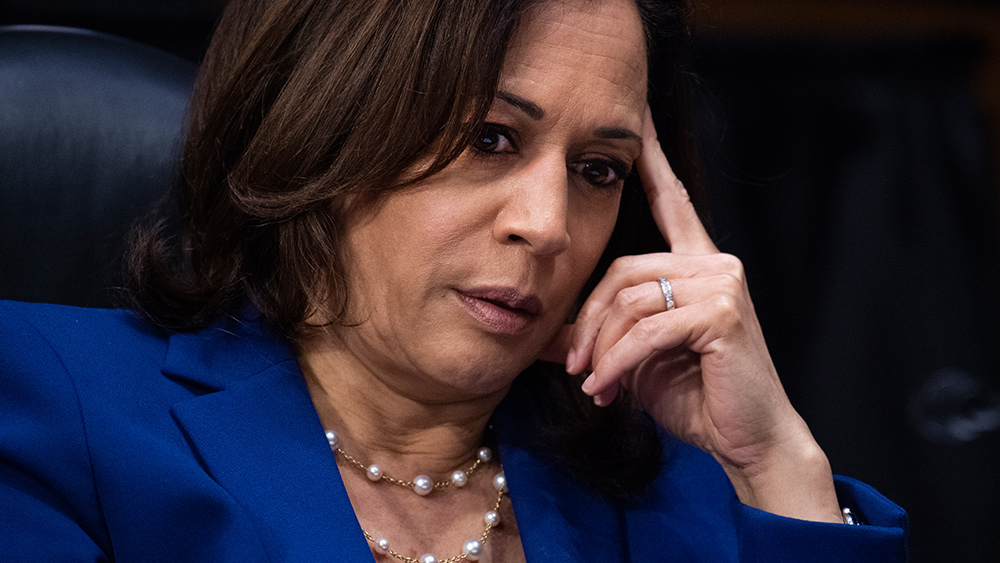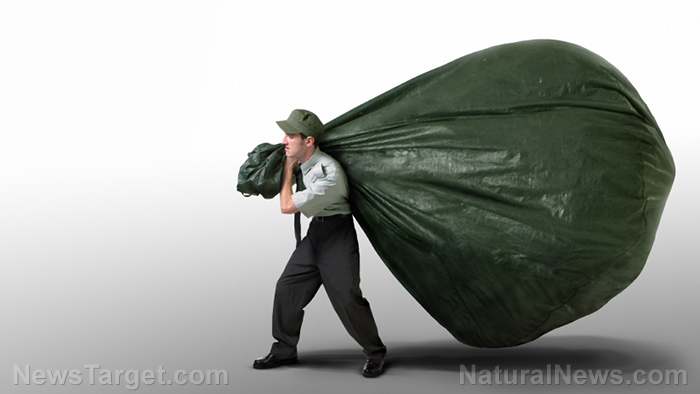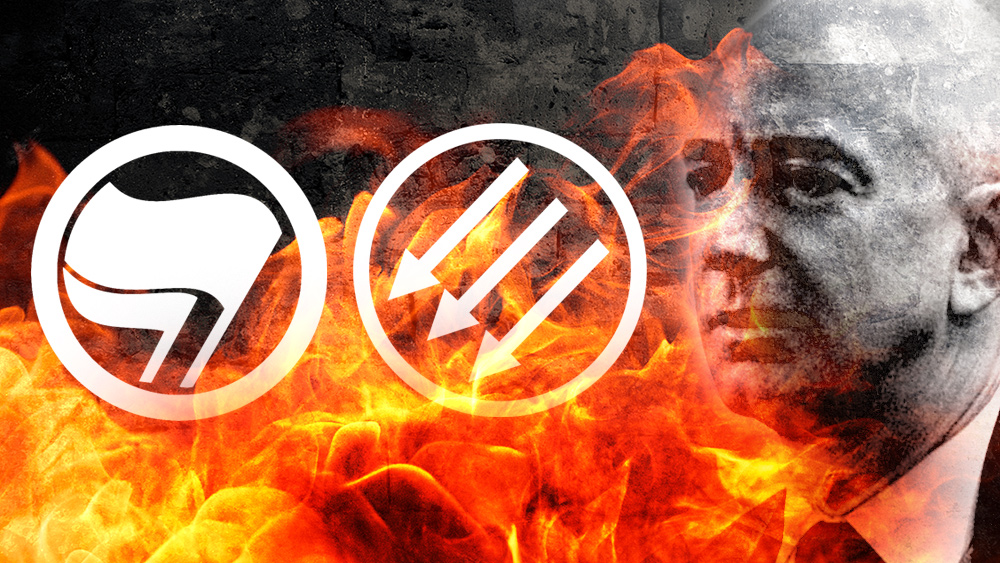Pandemic profiteering: Watchdog accuses Amazon of price gouging as Bezos’ wealth soars to $200 billion
09/21/2020 / By Divina Ramirez

In a recent report, Washington-based consumer watchdog group Public Citizen accused major e-commerce platform Amazon of price gouging – the practice of raising prices of basic necessities during disasters – amid the ongoing coronavirus pandemic, according to Mint Press News.
The report itself featured a long list of essential products that were being sold at inflated prices. For instance, a box of 50 disposable face masks listed on the platform’s own essentials line now retails for $39.99, a 1,000 percent increase from its designated price in 2019.
Corn starch, another household essential, saw a 1,010 percent increase in price, the highest among the listed essential products on the report. Sugar and toilet paper were being sold at a 520 percent markup while sanitizing products, such as soap and disinfectants, saw an almost 500 percent increase in price.
In a statement, Public Citizen‘s competition policy advocate Alex Harman said that Amazon has fundamentally misled the public, law enforcement and policymakers about price increases during the pandemic. Harman, who also authored the report, added that his findings indicate a need for a federal law on price gouging.
But Harman’s damning report isn’t one that the e-commerce giant hasn’t heard before. In fact, the accusations of price gouging began in March when thousands of sellers engaging in the said practice flooded the platform with high-priced listings.
This prompted Amazon to release an official statement, declaring that it committed itself to ensure fair pricing and hold price gougers accountable. Following through on these promises, the e-commerce platform removed 530,000 offers from the marketplace and suspended more than 2,500 seller accounts in its US marketplace.
However, Amazon was still engaged in price gouging on products it sold through its essentials line. Thanks to the increased profits from these marked-up products, Amazon founder and chief executive officer (CEO) Jeff Bezos has seen his net worth jump from $113 billion in March 2020 to $206 billion this month.
The rich get richer
Charging exorbitant prices for basic necessities amid crises do far worse than just cheat consumers of products that could mean life or death. With Amazon racking up unprecedented increases in profits thanks to their markups on essential products, Bezos has almost doubled his wealth during the pandemic.
Yet even as he becomes the first individual to reach a net worth of $200 billion, workers at Amazon and staff at Bezos-owned Whole Foods Market Inc. face the constant threats of hunger and homelessness. (Related: Jeff Bezos wants to eliminate all humans, including his own workers at Whole Foods.)
In fact, as per the e-commerce platform’s own data, an overwhelming number of their workers nationwide use food stamps to eat. Whole Foods workers have also been demanding better wages as far back as March, as well as guaranteed paid leaves, protective equipment and better working conditions amid the pandemic.
Rather than acquiesce to these demands, Bezos instead started a charitable foundation for them and asked the public to donate. Far from adequate wages, more than 90,000 Whole Foods workers nationwide also received new uniforms that sported the words “hero” on the front and “hardcore” on the back.
The dubious defense for price gouging
Price gouging is illegal in 35 states. In most of these states, price gouging during crises is considered a violation of deceptive trade practices laws. Most of these laws provide for civil penalties, while some state laws also enforce criminal penalties. However, there is no federal law protecting consumers from the said practice.
But even in the absence of comprehensive policies against price gouging, it isn’t difficult to understand its unethical nature and implications. Nonetheless, there are some economics professors and columnists who are willing to defend price gouging. But whether or not their arguments are convincing is another topic altogether.
Lili Carneglia, for instance, an economics professor at Valencia College in Orlando, Florida, wrote an article in libertarian think tank Foundation for Economic Education (FEE) in defense of price gouging. Carneglia argued that a neighborhood 7-Eleven charging $20 for a case of water after a hurricane is a good thing.
Moreover, laws designed to protect consumers from price gouging often just lead to food shortages during crises, she added. This happens because low prices push consumers to hoard. But despite her convictions, Carneglia herself admitted that she is unable to convince most of her students to share her perspective.
Meanwhile, The Boston Globe columnist Jeff Jacoby said that far from ensuring supplies remain available at affordable prices, laws against price gouging encourage anti-social behavior, guarantee food shortages and contribute to suffering during natural disasters.
Public Citizen is far from sharing the same sentiments. In his report, Harman concluded that price gouging exploits the most vulnerable. During emergencies, people are scared, desperate and in need. Therefore, there is no excuse for successful corporations taking advantage of consumers through price gouging.
For more related news on Jeff Bezos and the Amazon monopoly, check out JeffBezosWatch.com.
Sources include:
Tagged Under: Amazon, coronavirus, corporations, crime, current events, economics, economy, infections, Jeff Bezos, lockdowns, outbreak, pandemic, Price gouging, rich
RECENT NEWS & ARTICLES
COPYRIGHT © 2017 JEFF BEZOS WATCH














